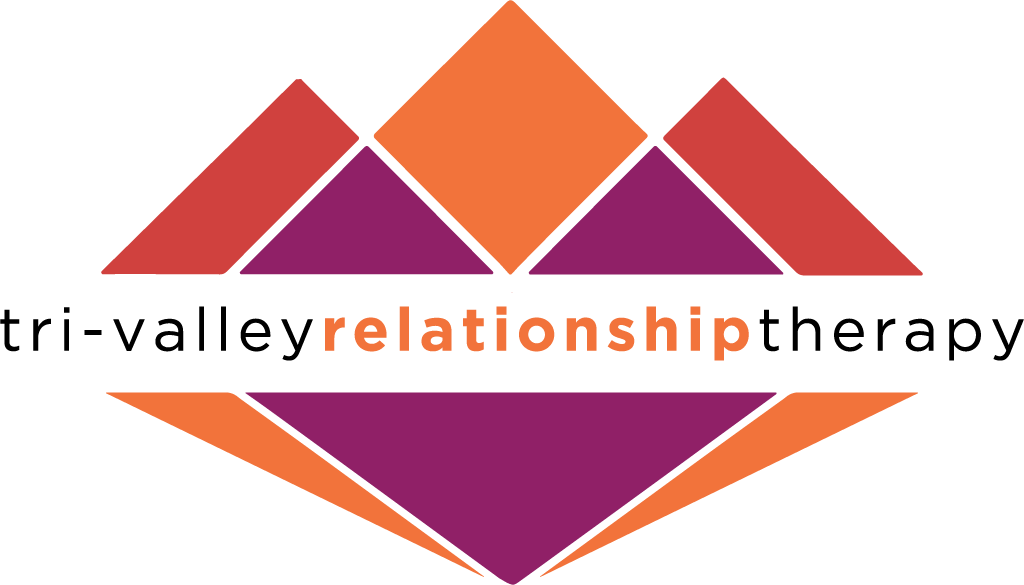Tips For Women With Orgasm Issues
Infrequent or absent orgasms is a common issue among women of all ages. Sex therapy at Tri-Valley Relationship Therapy in the East Bay can help you work through the barriers to more fulfilling orgasms.
You know the feeling…your partner wants to have sex and you do too but the frustration that comes with not being able to orgasm is something you are tired of experiencing. You feel aroused but just can’t reach orgasm. Perhaps your partner gets frustrated too or feels inadequate as a lover. You begin to believe that there is something lacking in you and feel deprived of ultimate sexual satisfaction.
You wonder if you will ever get to experience the peak of sexual pleasure and the doubts lead to feelings of sadness and even depression.
If you are a woman who has struggled with infrequent or absent orgasms, you are not alone. Difficulties with orgasm are the second or third most common complaint among women of all ages. Issues with orgasm manifest in different ways among women. Some women have never had an orgasm during their lifetime and others struggle with infrequent orgasms that only occur under specific circumstances such as during masturbation.
Causes of infrequent or absent orgasms:
• Depression can interfere with adequate arousal which in turn impacts the frequency of orgasms.
• Anxiety about not being able to orgasm blocks pleasure sensations
• Being uncomfortable with the feeling of being sexually aroused.
• Being unhappy or not satisfied with the relationship and partner.
• History of sexual trauma or abuse.
• Partner’s response to your orgasm difficulty- responding in a way that makes you feel deficient or that your sexual needs are a burden or even asking you to hurry it up!
What can you do?
Get comfortable with your body-
Our society and culture are riddled with sex-negative messages that find a way into our understanding of our bodies and sex. Many women don’t even know if they ever had an actual orgasm because they mistake the lubrication of the vaginal walls and the powerful sensations associated with intercourse as reaching an orgasm. A good exercise in becoming comfortable with your body is to explore how your body responds to different types of touch and stimulation. Using a hand-held mirror, notice what your genitals look like and explore which areas are more sensitive to touch. Use different types of touch and vary the pressure and strokes to see what feels good.
Regular masturbation-
Women with infrequent orgasms find great benefit in regular masturbation. It is an opportunity to learn first-hand how your body responds to sexual stimulation, the type of touch and pressure you need to orgasm and to feel grounded in your body. It is ideal to not use any pornography for this exercise and use your own touch to get yourself aroused. It is ok if you have to use a vibrator in the beginning but try to work towards not needing one if you can.
Ask for what you need-
About 80% of women need dual stimulation- both vaginal and clitoral stimulation for orgasm. Get comfortable with asserting yourself in the bedroom and asking for what you need from your partner. Many women stay quiet or only convey what feels good as opposed to what doesn’t because they want to boost their partner’s ego and don’t want their partner to feel inadequate. If you convey your needs in a kind and loving manner, chances are that your partner is not likely to feel incompetent or feel hurt.
Take your time-
Many women feel embarrassed about not being able to reach an orgasm or requiring a lot more time to reach one. During sexual intercourse, their partner might not be able to delay his own orgasm long enough in order to allow the woman to take her time to reach an orgasm. That is perfectly ok. If your partner finishes before you, neither one of you should feel embarrassed or ashamed. Have your partner participate in giving you pleasure through oral stimulation or touch and bring you to an orgasm. Every sexual experience does not have to be exactly the same as the last one- foreplay, intercourse followed by orgasm. Broadening your pallet for different sexual experiences could also help in breaking down the mental barriers to being able to orgasm.
Nip the guilt in the bud-
Women struggling with infrequent or absent orgasms are likely to feel guilty. These feelings stem from the thought that even though the woman loves her partner, she is unable to reach an orgasm with him during sexual intercourse. This guilt that surrounds the inability of being orgasmic with one’s lover changes into a pressure to perform and this pressure leads to anxiety. Remember, anxiety always overrides pleasure- if you are anxious, you will not feel the sensations of pleasure that you need to feel to get fully aroused.
You can access this article and other articles written by Dr. Nagma Clark on the Let's Talk Sex blog on Psych Central by clicking on this link:
https://blogs.psychcentral.com/sex-talk/2018/08/tips-for-women-with-orgasm-issues/
Written by: Nagma V. Clark, Ph.D., L.P.C.C. specializing in sex therapy, couples therapy & marriage counseling, premarital counseling, individual relationship therapy & LGBTQQI couples counseling at Tri-Valley Relationship Therapy, Inc. in the East Bay, in Dublin & Oakland.
If you or your partner would like to enhance your sexual connection or need help with a relationship issue or concern, sex therapy & couples counseling at Tri-Valley Relationship Therapy, Inc. in the East Bay can help. Dr. Clark has advanced & specialized training in sex therapy & couples counseling and she has helped many couples & individuals resolve their sexual concerns.
Call 925-400-3541 or email doctor.nvclark@gmail.com to schedule a free 15-minute phone consult or fill out the contact form and you will be contacted within 12-24 hours.

